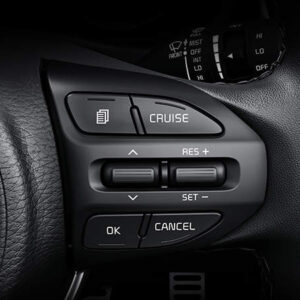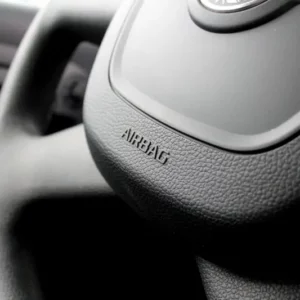Does refinancing a car hurt your credit? Refinancing a car loan could get you better loan terms and free up funds in your budget. But does refinancing a car affect your credit score?
You’ll likely see a small drop in your credit score. But don’t steer clear of refinancing just because of a temporarily lowered score. It could be a sound decision that results in cost savings or much-needed financial relief.
What Is Car Refinancing?
Refinancing a car is very similar to the financing process car buyers engage in to purchase the car new.

The first step in a refinance is to shop around by talking to different lenders, such as your credit union or bank, about rates and loan terms.
You’ll apply for the new loan by supplying the necessary support documents (as you did for your current loan), such as earnings and debt, and wait for approval. During the approval process the lender will look at your credit score.
If approved, the remaining amount you owe on your first loan will be paid off and you will start making payments on the new loan, just as you did before.
The credit experts at Experian tell us that when you apply for loans to shop for the best rate, each lender you apply with will request a credit check that causes a hard inquiry to be entered on your credit report.
This typically causes a small reduction in your credit score. If you qualify for and accept a loan offer, you’ll typically see another small score dip.
Because refinancing replaces an existing loan with another of roughly the same amount, its impact on your credit score is minimal. For more details read “How to Refinance a Car”.
Does Refinancing A Car Hurt Your Credit?
The short answer is yes—refinancing can negatively affect your credit score.
When you refinance an auto loan, you must submit a new loan application, which results in a hard credit check. The good news is that a single inquiry doesn’t stay on your credit report for very long.
Another reason why refinancing may have a negative impact on your credit is that it reduces the age of your loans. One of the factors that contributes to your credit is the average length of your credit history. As soon as you pay off your current loan, your average age of credit can drop.
In general, the effect of refinancing on your FICO score should be minimal. However, completing a credit check after refinancing is still a good idea to make sure it doesn’t affect your score too much.
How Does Refinancing a Car Loan Work?
Refinancing a car loan is the process of replacing your current auto loan with a new one. Most borrowers refinance to get a lower interest rate, a lower monthly payment, or a different repayment period.
To refinance, you must submit a new auto loan application, like you did with your original loan. If approved, you can compare the new loan’s interest rate with the rate you’re currently paying. If the interest rate is lower, refinancing will help you pay less each month to borrow the money.
When Should You Refinance a Car?

Since car refinancing can temporarily affect your credit score, you should first consider whether it’s the right financial move. Refinancing a car loan may be a good decision for you if you meet any of the following criteria:
- Interest rates have decreased: If average interest rates have decreased since you took out your original loan, it may be worth refinancing.
- Your credit score has improved: Making on-time payments for a long period of time can boost your credit score. If your credit score has improved significantly since your original loan, you could save money by refinancing.
- Your car has good resale value: If your car is worth more than your auto loan, refinancing can also help you save. Lenders may be more willing to offer you a better interest rate if your car maintains its value.
- Your loan is too expensive: A lower interest rate can provide you with significant savings each month, which may be important if your original car loan is too expensive. Refinancing your auto loan might be one of the best financial decisions if it keeps more cash in your wallet.
- You have a co-signer: A co-signer with good credit and a good payment history can also help you qualify for a better rate. A trusted friend or family member who’s willing to co-sign your auto loan could help you save money.
- You need cash: If you have positive equity in your vehicle, you may also qualify for a cash-out auto refinance. This type of auto loan refinancing replaces your existing loan and pays you the rest in cash.
Things to Consider Before Refinancing a Car Loan
Refinancing can be a great solution for some vehicle owners, but it’s not the best choice for everyone. Here are a few things you should consider before you refinance your car loan:
- Your credit score decreased since your last auto loan: If your credit score dropped since your original loan application, it’s unlikely that you’ll qualify for a better interest rate. In this case, it may be better to wait until you improve your credit or find a co-signer to refinance.
- Your loan provider charges prepayment penalties: Some auto lenders charge prepayment penalties if you pay off your loan early. Additionally, you may have to make another down payment or pay origination fees on the new loan. You’ll want to calculate these additional costs to decide if the savings are worth it.
- The value of your vehicle is less than what you owe: You may find it difficult to refinance an auto loan if you have negative equity in your vehicle. If you find a lender to approve you, expect to pay a much higher monthly payment.
- Your car is almost paid off: It may not be worth refinancing your car loan if you have already paid off most of the balance. Most of the interest that you pay on a car loan is at the beginning of the term. In this case, you could end up paying more by replacing your current loan with a new one.
How to Minimize the Negative Impact on Your Credit Score
Even if you have an excellent credit score, refinancing will probably have a negative effect on your credit for a short period of time. While it’s not entirely unavoidable, there are a few ways that you can minimize the impact, including:
Compare Rates within the Same Time Period
Comparing interest rates from various lenders is one of the best ways to get a good rate. The primary purpose of refinancing an auto loan is to qualify for a lower interest rate, which can lead to lower monthly payments. Credit bureaus typically bundle inquiries of the same type together, so try to compare rates within a week or two to avoid a major hit.
Check Your Credit Score
Checking your credit before applying for a loan is always a good idea. Before you start applying for refinancing loans, run a credit report from the three major credit bureaus: Equifax, Experian, and TransUnion. The U.S. government allows all consumers to receive one free credit report per year from all the main reporting bureaus.
Get Pre-Qualified
Most lenders offer pre-qualifications, also called pre-approvals, which is a letter that states how much money they are willing to lend you, based on the loan terms you chose. Getting pre-approved shows you how much money you can spend, and at what interest rate, without agreeing to the loan and applying.
Avoid Applying for Other Loan Types
When you’re applying for refinancing loans, avoid applying for any other types of loans during this time. Otherwise, you might be subject to multiple hard credit checks, which will impact your credit score even more. Try to time your auto refinance for a time when you don’t need any other loan types, like a mortgage.
When Is It A Bad Idea To Refinance A Car Loan?

Refinancing is not a good idea in a handful of scenarios.
- Old vehicle or high mileage: If you’re driving an older car or one with high mileage, it may be wise not to refinance. It’s not worth incurring refinancing fees if you must replace your vehicle soon.
- Refinancing fees outweigh the benefit: If you’ve already paid off most of your original loan amount, the fees associated with refinancing may outweigh the benefit.
- Applying for more credit soon: If you are applying for more credit or loans soon, you may want to reconsider refinancing. Refinancing your car loan will generate a hard credit inquiry and lower the average age of your accounts, which will temporarily lower your credit score.
- Can’t get a good rate: If the rates you are offered don’t beat your current interest rate, there’s little reason to refinance.
Can You Refinance a Car with Bad Credit?
While it’s possible to refinance a car with bad credit, it’s not always the best option. You usually need good to excellent credit to qualify for a better loan interest rate. With bad credit, finding a good interest rate will probably be much harder.
However, you can still explore refinancing, even with bad credit. Getting pre-approved from a few different lenders will show you what interest rates you can qualify for. If you find a lower interest rate than you’re currently paying, refinancing could be a good choice.
Another thing to consider is using a co-signer for your refinancing loan. If you have poor credit, co-signing a new loan with someone who has good credit can help you qualify for a better interest rate. However, refinancing with a co-signer who also had bad credit probably won’t help.
Is It Worth It to Refinance Your Car?
Even though refinancing your existing car loan can temporarily affect your credit score, the long-term cost savings is usually worth it. Refinancing could save you a lot of money, especially if your credit score has improved since you took out the current loan.
A lower monthly payment can also make it easier to pay down other loans you may have, which also improves your credit.
FAQs
How long should you wait to refinance a car?
There is no minimum time limit that needs to lapse before you decide to refinance. However, it is good to wait at least six months before refinancing the loan. Your credit score will still be recovering after your recent application, and it’s important to build a good payment history before applying again.
Is it bad to keep refinancing your car?
Legally, there is no limit to the number of times you can refinance your car. However, every time you apply for refinancing, you have to meet the lender’s eligibility criteria – like minimum payoff amount, loan terms, minimum credit score, and vehicle equity. It’s highly unlikely that you will be able to meet all of their criteria.
Additionally, borrowers who refinance their auto loan multiple times can be seen as financially irresponsible and rejected. Therefore, we would advise you not to refinance your car more than two times.
When is it a good idea to refinance a car loan?
If the interest rate you can get on a new loan is much lower than the rate on your old loan, it may be a good time to refinance your car loan. If it stays the same or goes up, you probably shouldn’t refinance.
How long should you wait to refinance a car?
While legally you could refinance your automobile as soon as you purchase it, you should wait at least six months to a year to give your credit score time to recover after taking out the initial car loan, establish a payment history, and recover from any depreciation that occurred when you acquired.
Above is information about Does refinancing a car hurt your credit? that we have compiled. Hopefully, through the above content, you have a more detailed understanding of How does refinancing a car loan work? Thank you for reading our post.









